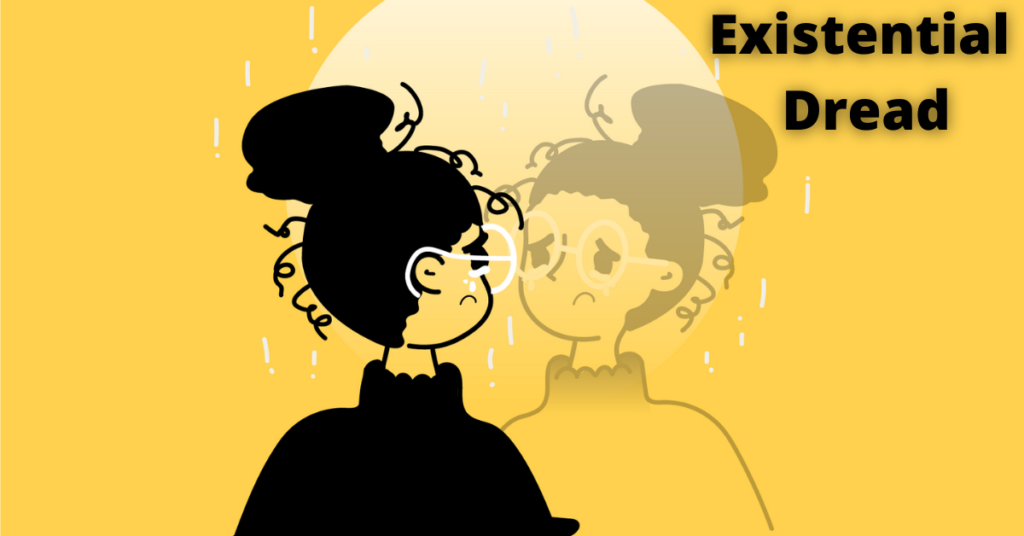So, what is existential dread? It’s a feeling of anxiety or despair that you get when you start to think about the meaning or purpose of life. You might have heard the phrase “life sucks”. Well, this is where it comes from. Existential dread can cause depression and other mental health problems if it goes untreated. Luckily there are ways to combat these feelings! We’ll go over them in this blog post.
Contents
What Is Existential Dread?
 Existential Dread means that you feel like life is meaningless and that you are powerless to do anything about it. It’s a feeling of hopelessness and despair that can be caused by many different things, such as the death of a loved one, personal failure, or simply being alive in an absurd world.
Existential Dread means that you feel like life is meaningless and that you are powerless to do anything about it. It’s a feeling of hopelessness and despair that can be caused by many different things, such as the death of a loved one, personal failure, or simply being alive in an absurd world.
This situation is also known as an absurdity, meaning that your life doesn’t really have any purpose or significance.
Signs of Existential Dread
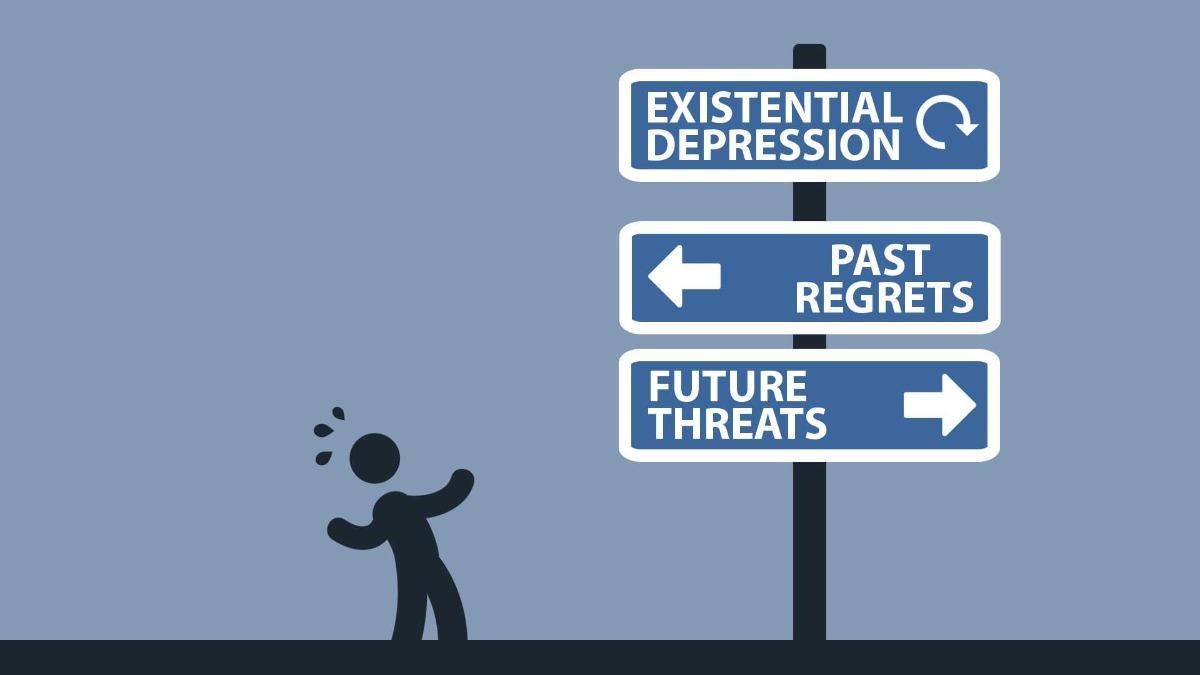
These are some of the signs of it:
Lack of Purpose In Life
There is a feeling that life is pointless and without meaning. This feeling is often caused by the realization that we will eventually die and that our existence is insignificant in the grand scheme of things.
Powerlessness
There is a sense that you are powerless to do anything about your situation. This can be caused by feelings of hopelessness and despair, or by the belief that life is ultimately meaningless.
Anxiety
Existential dread often causes anxiety and panic attacks. This is because it feels like you are trapped in a situation where you can’t escape from the pain and suffering.
Isolation
Many people who experience existential dread feel isolated and alone. They may feel like they are the only ones who understand what it’s like to feel so lost and helpless
Suicidal Thoughts
Existential dread can sometimes lead to suicidal thoughts. This is because there seems like no possible way out of the situation you are in, or because life itself feels pointless and without meaning.
Hopelessness
There is a feeling of despair, nothing will ever get better. You are overwhelmed with sadness because there seems no way out.
Lack of Desire
You do not want to face the world anymore or have lost all interest in life. It can even make you contemplate suicide as an escape from this undesirable situation, but it’s important to note that suicidal thoughts are usually temporary feelings during existential dread.
Worrying Thoughts
This can cause anxiety and worrying thoughts that you cannot control. This is because there seems like no way to stop the pain, suffering, or feeling of emptiness from continuing on forever.
Negative Thoughts
It’s common for those experiencing existential dread to have negative thoughts such as “life sucks” or “I hate my life.” They may also feel ashamed about not being able to find their purpose in life.
Numbness
There is a sense of numbness and detachment. It feels like everything around you has changed and nothing makes sense anymore. Your old values do not seem important anymore; it all seems pointless after all.
Causes of Existential Dread

These are some causes of existential dread:
Death of Loved One
The death of a loved one is often a triggering event that can cause existential dread. This is because it forces you to confront the fact that life is finite and that everyone eventually dies. It can also be difficult to cope with the idea that your loved one is now gone and will never come back.
Personal Failure
Experiencing personal failures, such as not being able to achieve your goals or dreams, can also lead to existential dread. This is because it feels like you have failed at life and are not good enough. You may feel like you are worthless and have no purpose in life.
Living In Absurd World
Some people experience existential dread because they believe that life is inherently absurd. They may feel like there is no meaning or purpose to anything and that we are all just blindly going through the motions without any real sense of direction.
Guilt
Many people experience existential dread because of feelings of guilt. This may be caused by things you have done in the past, or by worrying about the future and what might happen. You may feel like you are not good enough or that you will never be forgiven.
Change
Existential dread can also be caused by change. It can be difficult to cope with big changes such as moving to a new city, starting a new job, or ending a relationship. You may feel lost and uncertain about the future and what it holds for you.
Stressful Event
Any stressful event, such as getting divorced, losing your job, or going through a traumatic experience, can cause existential dread. This is because it feels like you are losing control over your life and it’s difficult to see how things will get better.
Dissatisfaction With Life
Many people experience existential dread because they are dissatisfied with their life. They may feel like they are not living up to their potential or that they are stuck in a rut. This can be caused by many things, such as boredom, feeling unfulfilled, or constantly comparing yourself to others.
Negative Impacts of Existential Dread

These are some of the negative impacts of existential dread:
Depression
Existential dread can lead to depression, which is a serious mental illness that causes feelings of hopelessness and despair. It can be difficult to cope with the pain and emptiness of existential dread and it’s common for people to feel like there is no way out.
Anxiety
Existential dread can cause anxiety, which is a feeling of worry or fear that something bad will happen. This is because it’s hard to deal with the uncertainty and lack of control that comes with existential dread.
Self-Esteem Issues
Existential dread can also lead to self-esteem issues, such as feeling like you are not smart enough or good enough. This is because it makes you feel completely overwhelmed and out of control which may cause you to question your worth and abilities.
Relationship Problems
People who experience existential dread often withdraw from others in an attempt to cope with their feelings. It’s common for them to lose interest in activities they used to enjoy and for communication problems to arise within relationships. They may become more irritable towards friends and family members, neglect responsibilities at home, spend a lot of time alone, or push people away altogether.
How To Diagnose Existential Dread?
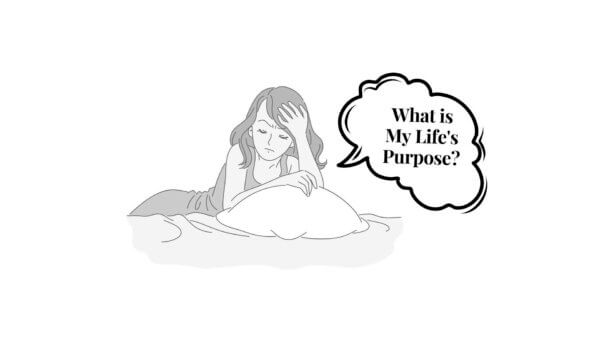
The diagnosis of existential dread can be difficult because it’s not a mental illness that has an official diagnosis. However, psychiatrists and other doctors may diagnose you with depression or anxiety disorder if they feel like your symptoms match these diagnoses.
Another way to diagnose is by using the Beck Depression Inventory or the Generalized Anxiety Disorder Scale.
How To Treat Existential Dread?
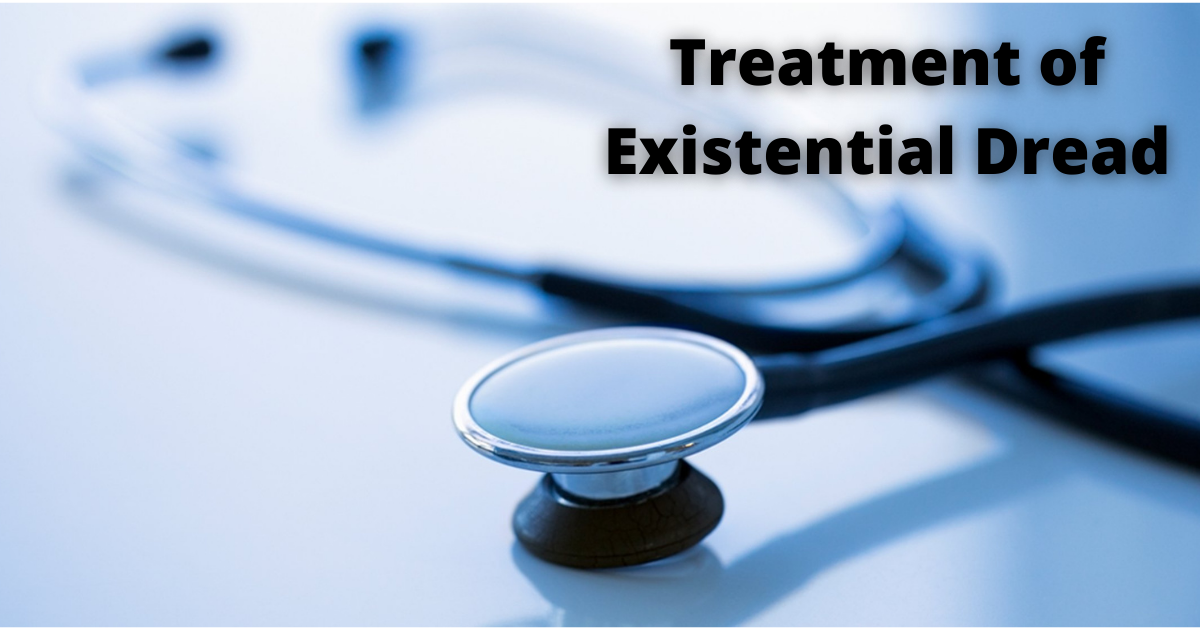
Treating existential dread is often challenging because this condition does not have specific treatments. It also varies from person to person depending on their unique situation and history of experiences in life so the best treatment approach will vary accordingly. Some of the best ways are:
Therapy
Talking to a therapist can be helpful in managing and coping with existential dread. They can provide you with support and guidance through this difficult time. This option is best for people who prefer one-on-one counseling or feel more comfortable talking to someone face-to-face.
Counseling
You can also try counseling, which is a form of therapy that involves meeting with your counselor on a regular basis to talk about the challenges you are facing and how you can cope with them in healthier ways. This option may be better if you need practical advice or help developing coping strategies. It’s usually shorter than individual therapy sessions but some types last up to 12 weeks while others involve life coaching over several months afterward.
Medications
If you are experiencing a lot of anxiety, depression, or other mental health symptoms along with your existential dread, medications may be prescribed to help manage these. Examples of medications that may be used include antidepressants and benzodiazepines.
Self-Care
It is important to practice self-care when coping with existential dread. This means taking care of yourself both physically and mentally. Some ways to do this are:
eating healthy foods, getting enough sleep, exercising regularly, practicing mindfulness or meditation, journaling, spending time with loved ones, and doing things you enjoy.
Support Groups
There are also support groups available for people who are struggling with existential dread. This can be helpful because it allows you to connect with others who understand what you are going through and can offer advice and support.
How To Manage Existential Dread?
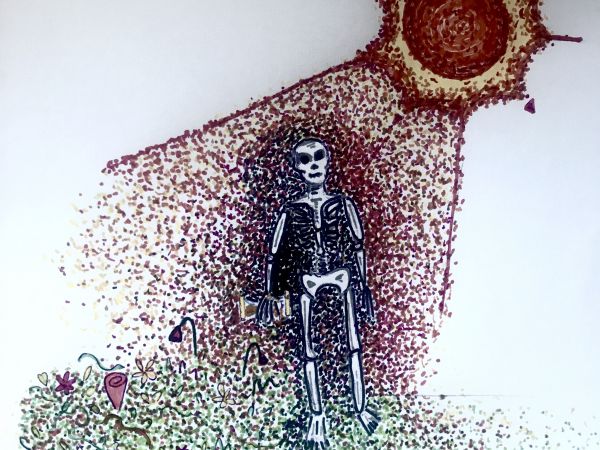
There are some methods to manage existential dread that can be helpful for most people. These are:
Identify Triggers
It’s important to identify what triggers your feelings of existential dread and anxiety. Once you know what these are, you can work on avoiding them or managing them better. For example, if seeing depressing news headlines online is a trigger for you, then unsubscribe from those feeds or take breaks from the internet altogether.
Create Routine
Having a routine can help to reduce feelings of chaos and uncertainty in your life. It provides a sense of stability and structure which can be reassuring during difficult times.
Talk To Someone You Trust
Talking to someone you trust about how you’re feeling can be very helpful. This could be a family member, friend, or partner. They can provide you with emotional support and help you deal with your feelings in productive ways.
Try To Be Patient
It’s important to remember that managing this takes time. It’s not something that can be cured overnight so be patient and don’t expect too much from yourself. Rome wasn’t built in a day!
Conclusion
In conclusion, existential dread is an overwhelming feeling of anxiety and fear that we experience in our lives. This occurs when you feel uncertain about your place and purpose on this planet and it can be difficult to manage. Luckily, there are ways you can cope with these feelings such as: practicing self-care, seeking support from others around you, identifying triggers, creating a routine for yourself, talking to someone who cares about how you’re doing—and having patience throughout this process.
If you are looking for affordable Online Counseling MantraCare can help: Book a trial therapy session
